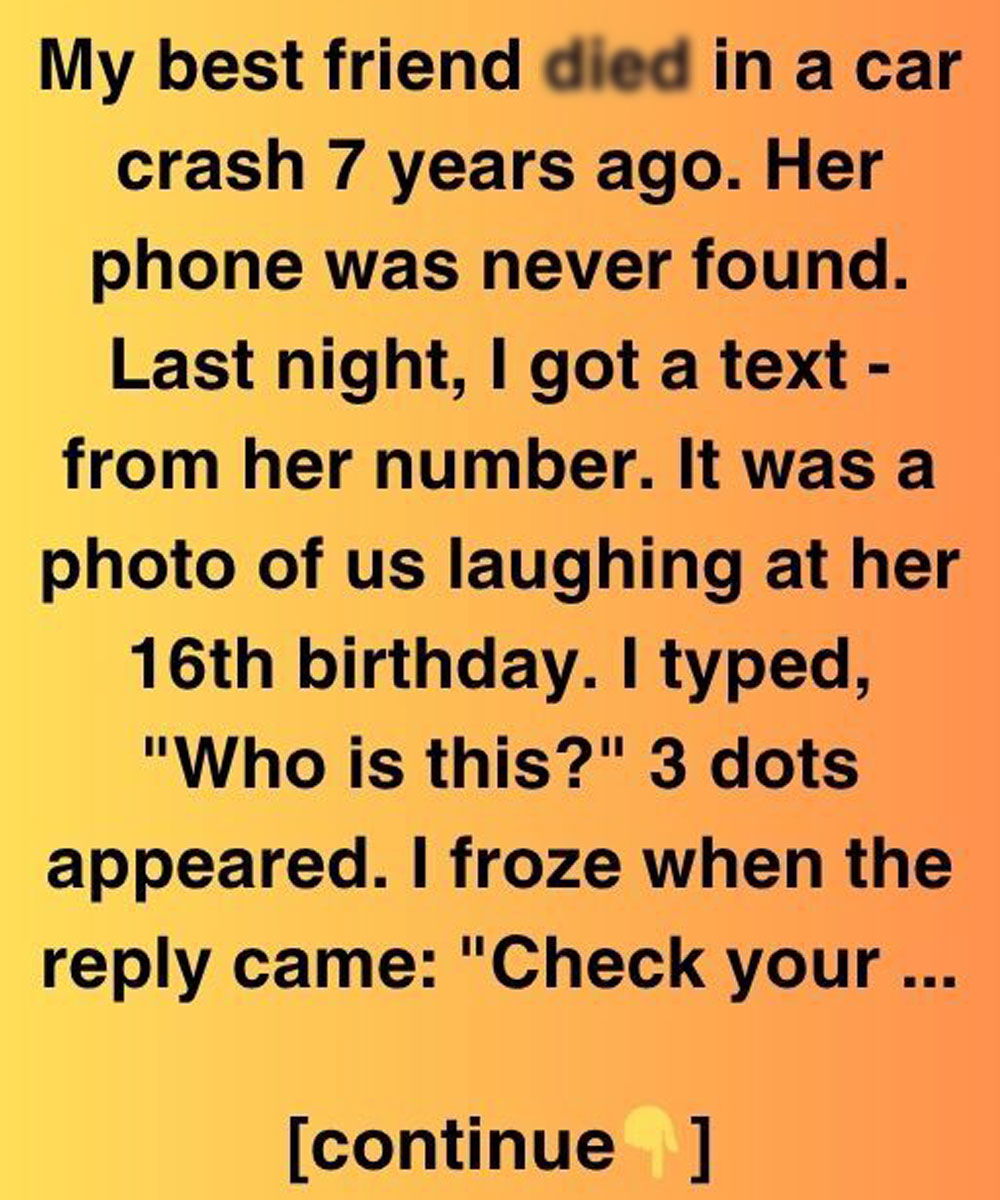
The message stared back at me, and for a long moment, I was frozen.
My heart pounded so violently I thought it might break my chest.
Every instinct told me to ignore it, to shut off my phone and pretend I hadn’t seen it.

But curiosity—and something deeper, something that felt strangely like hope—pushed me forward.
I moved slowly toward the door, each step heavier than the last.
My hand trembled as I reached for the knob, the silence in the house suddenly overwhelming. When I opened the door, the cool night air hit me, sharp and bracing.
At first, I saw nothing. The street was still, the porch empty. Then I noticed something on the doormat: a small, worn box, edges frayed like it had been hidden away for years.
I knelt, hands unsteady, and picked it up. It was heavier than it looked. Inside was something that stopped my breath — her phone. The familiar pink case, cracked and aged. Wrapped around it was a faded thread — the friendship bracelet we made at summer camp, the same one I thought was lost forever.
The phone shouldn’t have worked — not after disappearing in the crash, not after all this time. But the screen lit up. For a moment, I saw my own reflection, pale and shaken, before a single notification appeared. A message. From her. “I never left you. You just stopped listening.”
I collapsed into a chair, legs too weak to stand. My eyes filled with tears as memories surged — her laugh, her off-key singing, the final voicemail I deleted because it hurt too much to hear.

For years, I’d carried the weight of guilt. I missed her last call the night she died. I always wondered if answering it could’ve changed things, if I might’ve saved her. But reading her words, I finally understood: she didn’t hold it against me. She wanted me to forgive myself.
I held the phone to my chest, and for the first time in seven years, the heaviness lifted. The grief softened.
That night, I slept without fear. Because sometimes, the people we love aren’t truly gone. They find other ways to reach us. Love doesn’t end. It waits. It lingers. And if we’re willing to hear it — it speaks.















